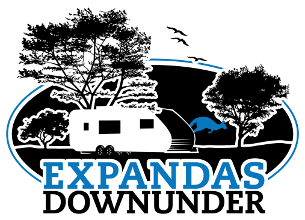Well said
@yabbietol , Any of those vehicles can be terrifying on a wet road and need special attention in most situations, when I learnt the ropes there were no courses or bits of paper but I have trained the odd trainer over the years.....................Bedford Fire trucks, slight slope when the rear let go you hung on till the rig was pointing uphill then floored it and hoped for the best, driver was usually the last one in the vehicle as eveyone else had jumped, driving over a small log on one side would get the blokes on the back leaping into the bush..............................oh great memories.
I had forgotten how bad the old Bedford fire tankers were; once (~1979) I drove one down the Narrow Neck fire trail to the Megalong valley in the NSW Blue Mtns. As
@Drover described they were scary to drive. The Captain (he kept his foot on the gear leaver) and I stayed in the cab while the rest of the crew got out and hung off the back, my instructions were if it popped out of gear, which it did often under load. I was to let the Captain jump out and then steer away from the vertical drop into the valley and run the truck into the cutting wall or a nice solid tree. If I could not get it back in gear or stop I was then to leave the truck. I asked what about the crew and was told by my Captain they will be OK, if they heard it drop out of gear they would drop off the back. The Bedford brakes only worked OK when the truck had no load, once full of water and crew the trucks could only really be slowed up downhill by using low gears. Unfortunately the gear box was a bit ordinary and they had petrol engines which had poor compression braking, as they were petrol they also got fuel vapour locks in hot weather or at fires. A very poor choice for a fire truck in the bush. So therefore, if you do buy a large 4WD please make sure it has effective brakes for its fully loaded weight and diesel compression braking is good and exhaust brakes are a real bonus.
I really like the OKA's great Australian design, still do not know why they are no longer made, it is a real shame. My key point is 4WD trucks are awesome they will go to some really isolated places, but they are not like driving a normal 4WD. They are heavy and have a very high centre of gravity and need to be treated with a lot of caution and respect.
Now going seriously off topic:
I do not resile from the need for specialised training for driving large 4WD, and to open the can of worms even more. I also strongly believe everyone towing anything over 750Kg should have specialised training and their licences endorsed for towing over 750kg. Despite having a lot of 4WD experience and training (Rural Fire Service trained bush fire tanker driver, Medium Ridged truck driving licence, NSW Gov remote area 4WD training, Army 4WD experience and training, etc.). My wife and I did a Tow-Ed course, after we went from 1.2t Avan pop top to a 2.5t full sized caravan. We both agree we should have done it when we first got our little Avan. Tow -ed povides training to a national standard to tow a caravan. Towing training is a great example of the Dunning- Kruger effect in action, the course is great for beginners, but also for older people like me who have "seen it all and wondered what actually happened" the course helps to highlight the unknowns we did not know, and gets rid of bad habits we all develop over time. It cost ~$600 for one day for the two of us with our own caravan and gives us a small discount on our CIL insurance. The key thing it is a nationally recognised competency, that would be easy for all caravan owners to do in their first year of ownership.
Tow-ed is just one company that offers this type of nationally recognised training.
http://www.tow-ed.com.au
4WD driver training from this lot has a good reputation (some of their instructors are local Rural Fire Service tanker drivers and instructors)
http://www.greatdividetours.com.au/driver-training/advanced-4wd-driver-training
http://www.greatdividetours.com.au/heavy-vehicle-off-road-training
You are never to old to learn, a nice definition, but it also applies to high skilled individuals, we cannot know everything about everything.
The Dunning–Kruger effect is a cognitive bias wherein unskilled individuals suffer from illusory superiority, mistakenly assessing their ability to be much higher than is accurate.








